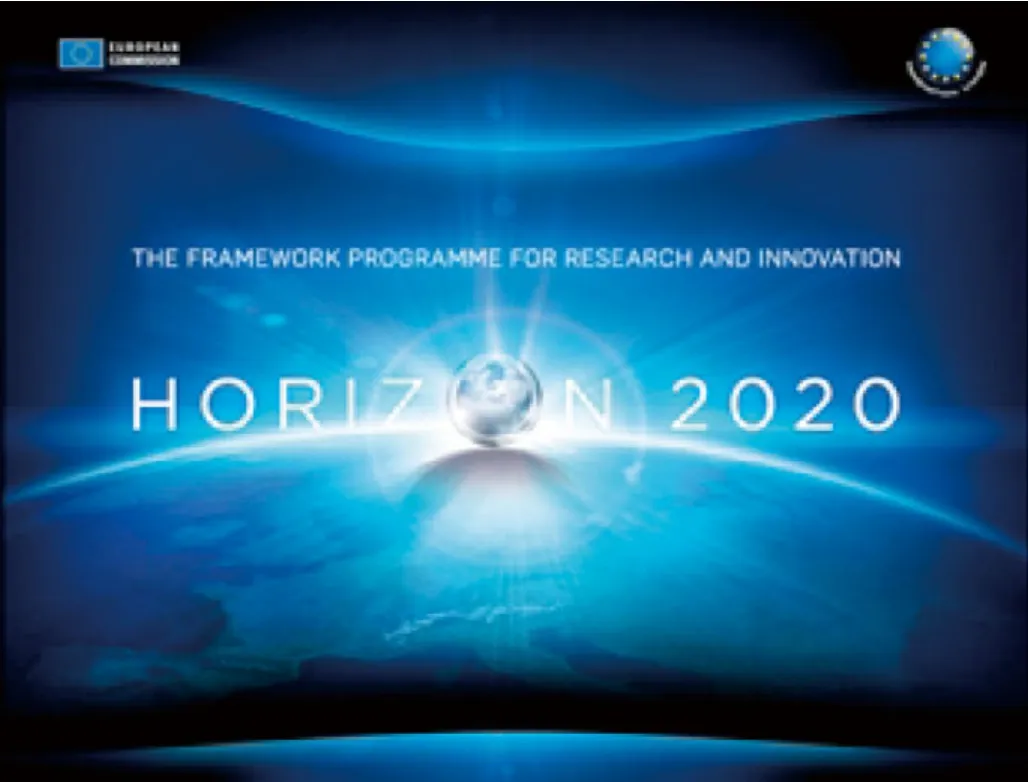欧盟研发框架计划与时俱进
欧盟研发框架计划与时俱进
欧盟研发框架计划(FP)于1984年开始启动实施,是由欧委会具体管理的欧盟最主要的科研资助计划,也是迄今为止世界上最大的公共财政科研资助计划。
欧盟研发框架计划从1984年的第一研发框架计划(F P1)发展到将于2013年截止的第七研发框架计划(FP7),再到2011年11月新推出的(2014-2020年)研发创新框架计划“2020地平线”(Horizon 2020),共计经历八个阶段。分别如下:
1、欧盟第一研发框架计划(FP1):跨年度1984-1990年,研发经费总投入32.71亿欧元;2、欧盟第二研发框架计划(FP2):跨年度1987-1995年,研发经费总投入53.57亿欧元;3、欧盟第三研发框架计划(FP3):跨年度1991-1995年,研发经费总投入65.52亿欧元;4、欧盟第四研发框架计划(FP4):跨年度1995-1998年,研发经费总投入131.21亿欧元;5、欧盟第五研发框架计划(FP5):跨年度1999-2002年,研发经费总投入148.71亿欧元;6、欧盟第六研发框架计划(FP6):跨年度2003-2006年,研发经费总投入192.56亿欧元;7、欧盟第七研发框架计划(FP7):跨年度2007-2013年,研发经费总投入558.06亿欧元;8、2020地平线 (财政预算预期):跨年度2014-2020年,研发经费总投入860亿欧元。
欧盟研发框架计划肩负着四大重任:建设欧盟统一的研究区域(ERA)、保持科学技术的卓越、提升工业企业的竞争力和应对经济社会的挑战。2011年,欧盟在金融经济危机阴影下对FP7进行的改革加入创新这一竞争性目标,同时赋予FP7和未来的2020地平线新的使命:经济增长和扩大就业。
Horizon 2020: The EU Framework Programme for Research and Innovation
Horizon 2020 is the fi nancial instrument implementing the Innovation Union, a Europe 2020 fl agship initiative aimed at securing Europe's global competitiveness.Running from 2014 to 2020 with an €80 billion budget, the EU’s new programme for research and innovation is part of the drive to create new growth and jobs in Europe.
Horizon 2020 provides major simplification through a single set of rules. It will combine all research and innovation funding currently provided through the Framework Programmes for Research and Technical Development, the innovation related activities of the Competitiveness and Innovation Framework Programme (CIP)and the European Institute of Innovation and Technology (EIT).
The proposed support for research and innovation under Horizon 2020 will:
· Strengthen the EU’s position in science with a dedicated budget of € 24 598 million. This will provide a boost to top-level research in Europe, including an increase in funding of 77% for the very successful European Research Council (ERC).
· Strengthen industrial leadership in innovation € 17 938 million. This includes major investment in key technologies,greater access to capital and support for SMEs.
· Provide € 31 748 million to help address major concerns shared by all Europeans such as climate change, developing sustainable transport and mobility,making renewable energy more affordable, ensuring food safety and security, or coping with the challenge of an ageing population.
Horizon 2020 will tackle societal challenges by helping to bridge the gap between research and the market by, for example,helping innovative enterprise to develop their technological breakthroughs into viable products with real commercial potential. This market-driven approach will include creating partnerships with the private sector and Member States to bring together the resources needed.
Horizon 2020 will be complemented by further measures to complete and further develop the European Research Area by 2014. These measures will aim at breaking down barriers to create a genuine single market for knowledge, research and innovation.


